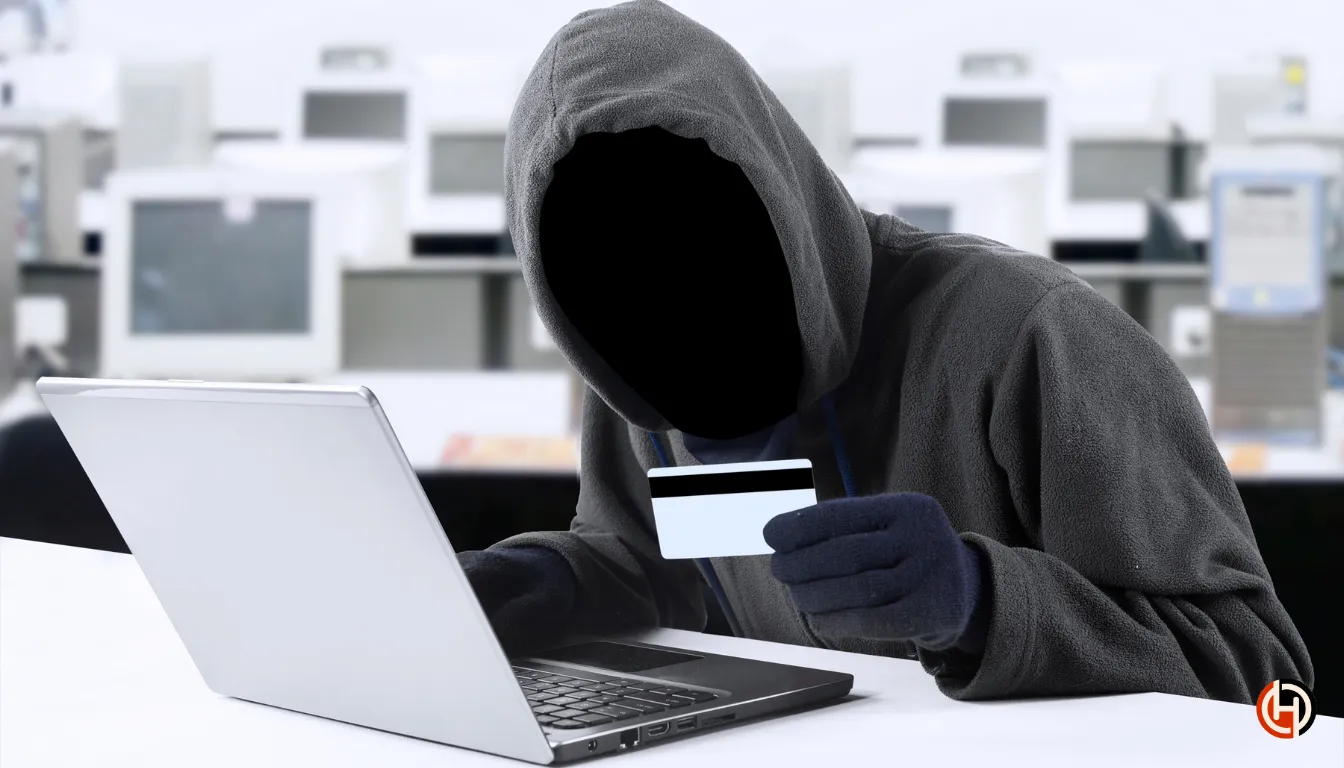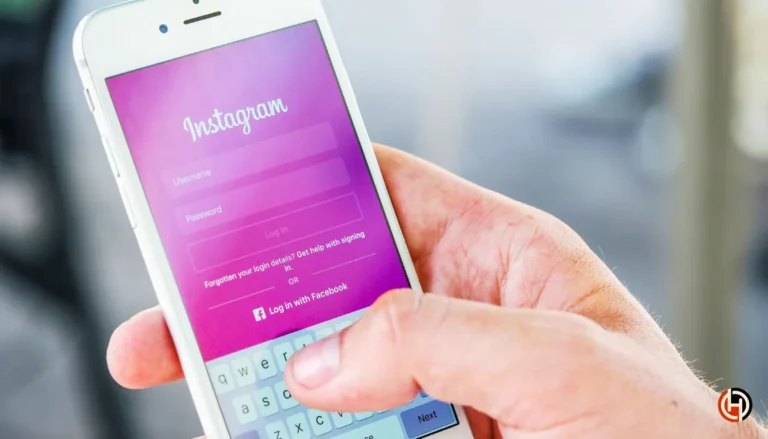Which of the Following Will Help You Protect Yourself from Identity Theft and Fraud?
Hello, our reader! We understand that there are times when you ask yourself, Which of the Following Will Help You Protect Yourself from Identity Theft and Fraud?? Both identity theft and fraud are genuine problems in contemporary society that can affect all citizens of all ages and origin. It is therefore very important to do everything right in a bid to ensure that your data and your monetary assets are safe.
So in this article we decided to explain how you can understand if you’ve become a victim of identity theft, how not to allow it, and what if it has already happened? So, what are you waiting for?
What Is Identity Theft and Fraud?
It is a type of fraud where somebody illicitly has access to personal details for example your Social Security number or banking details and any other personal details that the fraudster has a legal right to use in lieu of the legitimate holder. While fraud, the process of deceit with motives of making a financial or personal benefit at the other party’s expense.
However, fraud is huge and a basket, while identity theft is one of the ways fraudsters use to actualize their goal. The FTC report indicates that 1.3 million people fell prey to identity theft in 2020, and it was even worse subsequently.
How Does Identity Theft Happen?
Identity theft can occur in many ways, and understanding these methods is the first step to prevention. Common techniques include:
Phishing Emails and fake websites
Many hackers aim to fulfil your expectations of a legitimate company through an email or a website that has been crafted by the hacker in such a way.
Data Breaches
Cyber criminals attack commercial outlets and other institutions in order to access customer information, thus putting the lives of millions of individuals at risk of identity fraud.
Mail Theft or Dumpster Diving
Physical mail containing sensitive information can be stolen directly from a mailbox or retrieved from discarded trash.
Social Engineering Scams
Either for a direct meeting or for managing a computer, the targets are expected to reveal as much information as possible about the fake character.
Signs That You May Be a Victim of Identity Theft
They should also be able to identify signs or alarms that could show that their Identity was hacked. Look out for the following signs:
- Squiggly rises or drops in your credit score can be inexplicable for a while.
- Unrecognized transactions on your credit cards or bank statements.
- Failed to grant credit applications despite the fact that they were credit-worthy.
- Receiving bills or notices of accounts or loans unknown to the holder of accounts.
Which of the Following Will Help You Protect Yourself from Identity Theft and Fraud?
Protecting yourself requires a multi-layered approach. Here are critical steps you can take, broken down into actionable categories:
Secure Personal Information at Home
There should be a secure safe to keep hard copies of physical records that contain distinguishable personal information. Documents such as your Social Security card, passport, and tax returns should never be left just anywhere since you wouldn’t want them to be stolen or lost in the first place. Most of these crucial documents should be placed in fireproof and waterproof safes to offer added security, especially in emergencies.
Also, before throwing away any papers with such details as your account statements, utility bills, or credit card offers, tear them into pieces. Shredding assists in preventing your documents from getting into the wrong hands of people with intentions of identity theft since they cannot go through trash items that have been buried or disposed of.
Selecting a good shredder is also a good way of ensuring that you safely dispose of any paper and documents that may contain information that you do not want anyone else to access and, therefore, protect yourself from identity theft.
Protect Financial Accounts
If you have any online accounts, don’t use weak and similar passwords to control your account from any other person. A complement to a good password is usually at least eight characters, and it is made up of capital letters and small letters, numbers and characters. Do not use the same password when opening different accounts, as this would mean that if one was threatened, the other was threatened, too. For this reason, it is suggested to use the professional grade password manager in order to generate, store, and manage passwords to meet the goal of the passwords to be as secure as possible.
Two-factor authentication
Always turn on two-factor authentication whenever it is implemented on the account you are using. This contributes an additional level of protection in that a user provides both a password and a form of identification like a code in the phone, a push notification or even a physical key.f This goes a long way to minimizing the extent to which someone can breach your account even if they have your password.
Bank statements and credit reports
Check your bank statements and reports on your credit history at least once a week for possible fraud. Pay attention to any transactions, charges or accounts that you don’t know. If you want something unusual, don’t waste time and just report it to your bank or financial institution. Requesting transaction alerts and enrolling for the free annual credit report can also assist in being proactive when it comes to your financial details.
Practice Online Safety
Minimize Personal Information Sharing
And always remember to be vigilant with the information you post on social sites. Facts such as the house you live in, your date of birth, your dog’s name or any other trivial fact can be very embarrassing but to a fraudster this is good news as they can easily answer security questions on your accounts. Make smart posts and ensure you take time to adjust the privacy settings on all the social networks used.
Use a VPN on Public Wi-Fi
Any web connection that is open is not secure and anyone can tap into whatever you are browsing on the Internet. Being in public places that have insecure internet connections should warrant a use of a Virtual Private Network (VPN). When connected to the Internet using a VPN service, your data is encrypted, and your browsing, passwords, and details are safe.
Check for Secure Online Transactions
If planning to pay for goods online, one should make sure that the site is secure enough. This is an opportunity to check if the site has the leading “HTTPS” prefix and the lock icon in the address bar of the browser. This bothersome confirms that the site employs encryption to ensure that your sensitive data including your credit card details are not intercepted by various hackers.
Monitor Credit Reports and Alerts
Get a Free Annual Credit Report
You can request a free credit report once a year from each of the three major credit bureaus: Some of them are; Equifax, Experian, and TransUnion. Such reports will indicate the credit activities you conducted earlier, and they enable you to check for traces of fraud. You can make them available and verify if the credit records are correct through AnnualCreditReport.com.
Your Credit with a Fraud Alert or Credit Freeze
If you receive a rating that tells you there are suspicious activities in your accounts, you should be the one putting a ‘fraud alert’ or even ‘credit freeze’.
- Fraud Alert: Sends a warning to your creditor report and thus prevents a person with a fake credit report from opening an account in your name. In order to approve any new credit requests, you stand to be asked to clear an identity check process.
- Credit Freeze: Completely shields creditors from accessing your credit report, which acts as a stop toward new accounts that have been opened without approval.
Both are free to the public and efficient means of taking control, and one has to call the three main bureaus to get the process rolling. They are required to protect your other sensitive personal financial data.
Be Aware While Traveling
- These systems are likely to have malware or keyloggers installed, which compromises your accounts and passwords whenever you log in to the accounts. As much as possible, always use your own secured devices.
- Carry RFID-blocking wallets when going out since some people have their credit cards and IDs cloned through electronic theft. These wallets shield you from any radio waves that might be directed to your card, disabling anybody with an RFID scanner to easily strip you of your card details without having to physically touch your wallet.
- It is advisable to save your passports, boarding passes, and other important travel papers in a travel organizer or a secure pouch. Try to find those that contain zipper closure, are waterproof, and come with RFID protection features, so you won’t have to worry about the documents being stolen or injured.
The Role of Identity Theft Protection Services
However, to enhance the outlook of protection, it is also wise to sign up for an identity theft protection service. Some of the benefits you enjoy from these services are as follows when it comes to protecting your personal and financial information. Here’s a breakdown of what they offer:
Real-Time Alerts for Unusual Activity
Paid identity theft protection services track your data on different websites and notify you if they were used on sites containing suspicious content. Unlike other forms of identification theft where strangers enjoy using your hard-earned money, with Credit monitoring, you get an alert immediately if there is a new credit card application made in your name or any unfamiliar transactions on your account.
Insurance Coverage for Financial Losses
All the services have insurance that will help you avoid any money loss owing to cases of identity theft or fraud. These may be in the form of money, attorney fees and all other expenses associated with mitigating identity theft issues.
Recovery Assistance
With identity theft some of these services may offer recovery support when this has happened thus making it seem overwhelming. This includes reporting cases to the police, freezing of accounts, and putting everything in the way it ought to be as fast as possible to have the normal you back.
Popular Identity Theft Protection Services
There are some providers who have gained much popularity; some of them are LifeLock, Experian Identity works providers for individuals and families. These services aim to provide broad protection and assurance, whether required.
As much as one pays for an identity theft protection service, it saves one a lot of time, energy, and, more importantly, money, which such service offers extra coverage in today’s world of hackers.
What to Do If You Become a Victim of Identity Theft
If you suspect your Identity has been compromised, take immediate action to limit the damage.
Immediate Steps
- File a report with the Federal Trade Commission (FTC) at IdentityTheft.gov.
- Notify your local police department and obtain a copy of the police report.
Secure Accounts
- Contact your banks and credit card issuers to freeze any compromised accounts and request new account numbers.
- Change all passwords, PINs, and security answers associated with your accounts.
Ongoing Monitoring
Finally, one should check the credit report obtained from, among others, Experian, Equifax, and TransUnion and look for any new accounts, transactions, and changes that suggest additional misuse of personal details. Take some time to search for new profiles, wrong phone numbers, addresses or any sign of fraud.
You will also wish to think about signing up for a credit check subscription that will notify you in real defence of any unusual activity and that may include a new credit check or alteration to your credit report. These services can be especially useful when a client is recovering from a particular disease or simply gets scared that the disease might recur.
Emerging Threats and How to Stay Ahead
Stay Alert to Evolving Identity Theft Tactics
Identity theft strategies are becoming increasingly sophisticated. Here are some of the newer threats and how you can protect yourself:
Synthetic Identity Theft
Criminals are now engaging themselves in synthetic identity theft; that is, they use real identity data, for instance, the Social Security number, together with fabricated data to form new identities. These fake identities are then employed to create credit card accounts, apply for loans or support fraudulent activities, and the victims can take months or years to notice. Be cautious by at least keeping track of your credit report and, sometimes, tackling any unfamiliar score.
Protect Cryptocurrency with Encrypted Wallets
For those who possess cryptocurrency, the safety and encryption of your coins or tokens are vital. Hackers can easily get access to your wallet when you do not protect your pockets from misuse. There is an extra level of security offered by encrypted wallets that will ensure that your keys are always secure. Always make sure you are dealing with competent wallet providers, and where you can always make sure to set up multiple authentication factors.
Invest in Advanced Antivirus Software
Cyber criminals can steal your personal details through other types of bad programs such as spyware and keyloggers. These attacks require higher levels of certification to protect against them, which is achieved by installing better antivirus software. Antivirus programs, for instance, will be able to identify hacking scenarios and prevent hackers from accessing your data. Always update your antivirus to reduce the possibility of it availing itself of modern threats.
The best part is that you can minimize these new types of identity theft by informing and being alert.
FAQs About Which of the Following Will Help You Protect Yourself from Identity Theft and Fraud?
Can identity theft happen even if I don’t share my information online?
Yes. Physical methods, such as mail theft or dumpster diving, can expose you to identity theft even if you avoid online activity.
What is the most effective way to monitor my credit?
Use annual credit report to access your credit reports for free and review them regularly. Consider a credit monitoring service for real-time alerts.
How long does it take to recover from identity theft?
This varies depending on the complexity of the case but can take anywhere from weeks to several months. Acting quickly can significantly reduce recovery time.
Conclusion
We have been discussing the question on Which of the Following Will Help You Protect Yourself from Identity Theft and Fraud?? and discussed appropriate clicks to safety and to privacy of data. Through learning how to identify the early signs and resultant effects of identity theft, ways of protecting oneself, and how one can reopen operations if affected, identity theft and fraud can be fought off.
Start protecting yourself today, check your credit report, make strong passwords, and use extra safety tools if needed. Thank you for reading our article! We will see you again with another helpful topic. Stay safe!







